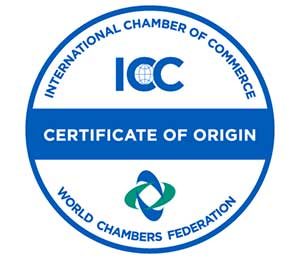Certificates of Origin
How certificates of origin stimulate global trade
This week, we're taking a look at how certificates of origin are used to support the movement of goods across borders with a success story in the Asia-Pacific.
As the global trade environment becomes more complicated and new rules and regulations emerge, the role of customs is becoming critical. By verifying compliance with origin-related requirements, customs authorities can protect against the diversion or transhipments of shipments that may pose risks or impede free trade agreements due to tariffs or other duties.
On 1 January, the Regional Comprehensive Economic Partnership (RCEP) came into effect. The new trade agreement aims to create a better business environment with fewer investment barriers and lower tariffs.
On the same day, the China Council for the Promotion of International Trade (CCPIT), China’s foreign trade and investment promotion agency, issued 158 RCEP certificates of origin for 69 Chinese enterprises nationwide. Certificates of origin are legal documents that accompany goods moving across borders, certifying the country of origin of the goods, and enabling governments, customs authorities, importers, and exporters to track the movement of goods.
“We are extremely grateful to the China Council for the Promotion of International Trade for helping us issue the first certificates of origin under the RCEP,” said Cheng Chen, General Manager of Jiangsu Bohan Industry Trade during an interview on CGTN Global Business earlier this month.

CCPIT is a member of ICC’s International Certificate of Origin Accreditation Chain (CO Chain), which is managed by ICC’s World Chambers Federation. As members of the CO Chain, CCPIT commits to the highest level of quality, implementing transparent and accountable verification procedures. As such, they receive the right to use ICC’s globally recognised quality stamp, which reinforces CCPIT’s integrity and credibility as a trusted third-party issuer of COs.
Sun Tingting, CCPIT FTA Project Manager commented to CGTN Global Business: “There is a big difference from the ones we issue compared with China Customs, as there is the ICC quality label because the CCPIT is also representing chambers of commerce in the world.”
With COs, businesses can enjoy preferential tariffs when they export chemical, mechanical and electrical goods to RCEP member countries. The value of the exports that CCPIT issued COs for on 1 January came in at US$12 million, and the RCEP certificates of origin are expected to help reduce tariffs for the related Chinese enterprises by US$180,000.
Today, filing for COs is easier than ever with electronic COs, or eCOs.
“The filing and application process for certificates of origin were done online at the company’s office and after virtual scrutiny by the CCPIT, they were able to print the stamp. The whole process took just five minutes,” said Yan Yun, General Director, CCPIT Commercial Certification Centre to CGTN Global Business.
To learn more about joining the ICC WCF International Certificate of Origin Accreditation Chain, contact our CO team at wcf@iccwbo.org.
The Regional Comprehensive Economic Partnership (RCEP) came into effect on January 1. It has now started to create a better business environment with less investment barriers and lower tariffs. pic.twitter.com/UsUk8iZTks
— CGTN Global Business (@CGTNGlobalBiz) January 3, 2022
